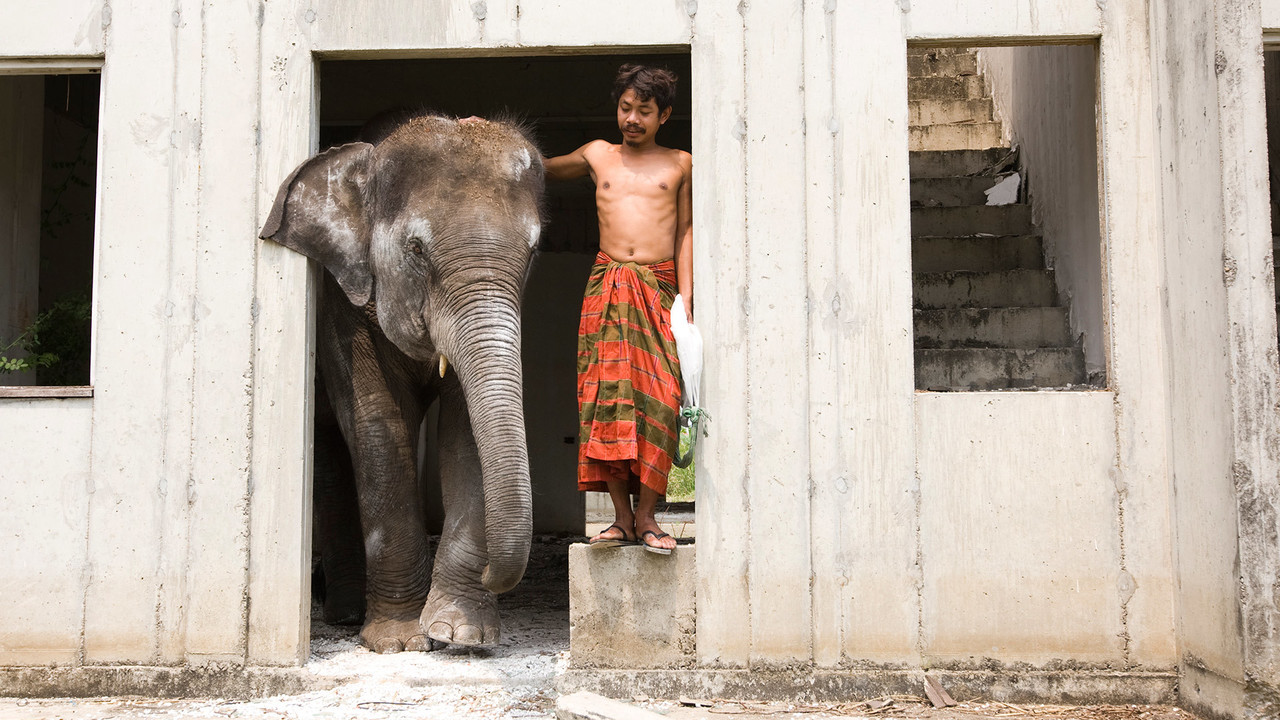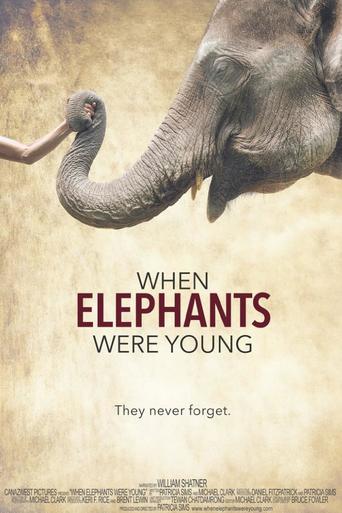Brightlyme
i know i wasted 90 mins of my life.
Gurlyndrobb
While it doesn't offer any answers, it both thrills and makes you think.
Yash Wade
Close shines in drama with strong language, adult themes.
Anne Dillon
"When Elephants Were Young" is a brilliant, insightful, and sensitive new film from the Canadian film-making duo Patricia Sims and Michael Clark, whose previous documentary "Return to the Forest" (http://worldelephantday.org/about/return-to-the-forest), chronicled the successful and ongoing mission of the Elephant Reintroduction Foundation of Thailand in returning captive elephants to the wild. This new film, "When Elephants Were Young," details the life of Bangkok elephant Nong Mai and Nong Mai's young male mahout (caretaker and trainer), Wok. Nong Mai and Wok attempt to forge a living by illegally begging on the streets of Bangkok, facing indifference if not outright hostility at every turn. This is a demeaning development from a culture that once elevated the sacred elephant/human relationship that has existed since time immemorial. Narrated by William Shatner, the film is chock full of fascinating information about this age-old symbiotic dynamic. It articulates the integral role the intelligent and highly sentient Asian elephant has played in the successful development of the Thai economy and how intertwined the symbolism of the elephant is with the Buddhist culture that prevails in Thailand today. Nong Mai is like family to Wok, and we watch with heavy heart as together they try to retain some shred of dignity in the face of extreme hardship in their collective struggle to survive on the street. The film details how and why the fate of the Asian elephant has become so perilous, including how the tourism industry in Thailand has largely contributed to the elephants' deprivation and abuse. It discusses the decline in numbers of the Asian elephant population in Thailand (where there used to be 100,000 to 200,000 about 100 years ago there are now only roughly 4,000) and pinpoints the causative factor: a shrinkage of their range due to manifold forms of human encroachment. The story of Nong Mai and Wok has a happy through bittersweet conclusion while the film itself is a heart-rending clarion call to everyone concerned with the future of the planet and its wildlife, to stand up and take action to help these precious imperiled Asian elephants, of which only approximately 45,000 remain alive today.
devoncw
I was deeply impressed by the artistic approach of 'When Elephants Were Young' as it flashes no strong message but has an underlying tone of honesty and transparency that allows one to come to their own conclusion on the socio-economic importance of elephant businesses, in contrast to the goals of release. The stunning images provide a unique insight into Thai street life and urban-rural family challenges. The viewer is taken into landscapes and social contexts that are rarely seen, certainly by the tourist but also are less of a focus point for film makers. The build-up of the story surrounding one family in particular and their elephant is touching and one can easily imagine how many other families are experiencing the same conflict and choices across Thailand and beyond. This film is for anyone who wants to take a dive deeper to get to know individuals and real working stories. Highly recommended for the nature doc lover to those loving a good story.
fdbirdie
"I am no bird; and no net ensnares me; I am a free human being with an independent will. Life appears to me too short to be spent in nursing animosity, or registering wrongs. I try to avoid looking forward or backward, and try to keep looking upward. " – Charlotte Bronte Anyone who has ever met, or had the privilege of working with Patricia Sims, would understand how the quote above explains the inner being of the woman. I had the honour to be invited to view the screening of her documentary film, "When Elephants Were Young" which debuted at the 2015 Whistler Film Festival this past weekend. The movie plot dealt with the extraordinary, yet complex life, of a mahout and his elephant living and surviving in Thailand. The juxtaposition of their lives was intertwined through a series of emotional and thought provoking scenes. Grappling with the every day need to exist and find work in a land where things are changing rapidly, the mahout had to make a heart breaking decision to sell his elephant after years of working with it, in order to survive. Coming away from the film, I was awakened to the real life dilemmas faced by both man and animal in a world where the line between right and wrong are easily skewed by age-old cultural ideals. Patricia's portrayal of the complexities on both sides of the situation perpetuated a strong sense of empathy for the mahout, yet, at the same time, confirmed the atrocities suffered by the elephant for millennia, are slowly coming to an acknowledgement long overdo. "When Elephants Were Young" is a beautiful documentary that tears at the heart with its ability to sever the ambiguity of nature vs. man by revealing raw footage of authentic life experiences between the two. I would highly suggest taking the whole family to this movie. Lyrics by Kate Bush, resounding throughout the film, summed up the gist of the movie's non-biased theme: "And if I only could, I'd make a deal with God, And I'd get him to swap our places, Be running up that road, Be running up that hill, With no problems." Patricia Sims founded World Elephant Day in 2012. Congratulations on your outstanding film achievement Patricia. Fran Duthie, Co-founder Elephanatics
joanne-ca
This documentary, about the endangered Asian elephant in Thailand, profiles the reality facing a young elephant, Nong Mai, who her owner, Wok, has pressed into illegal begging on the streets of Bangkok. Insight into the threats to the Asian elephant population unfolds alongside the tragedy of seeing the day-to-day grind and pain of Nong Mai's captivity. Loss of habitat (95 percent of Thailand's forests have been harvested and replaced with urban centres or rice fields), poaching for ivory, elephant tourist shows and illegal street begging have so seriously undermined wild elephant populations that they are considered a threatened species. The film also points out the decisions and actions taken by the Thailand government, and conservation organizations, to protect and regenerate the Asian elephant population - which is also a powerful means to regenerate lost forest. When Elephants are Young is powerfully informative and is sure to prompt anyone who watches the film to take part in helping to conserve the wild Asian elephant population in the variety of ways offered.

